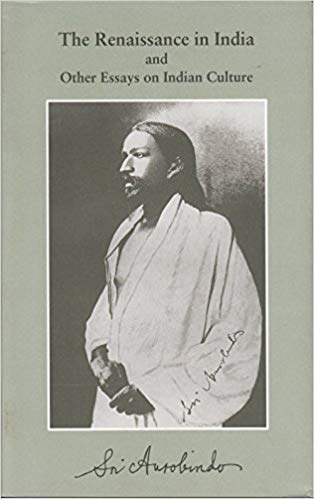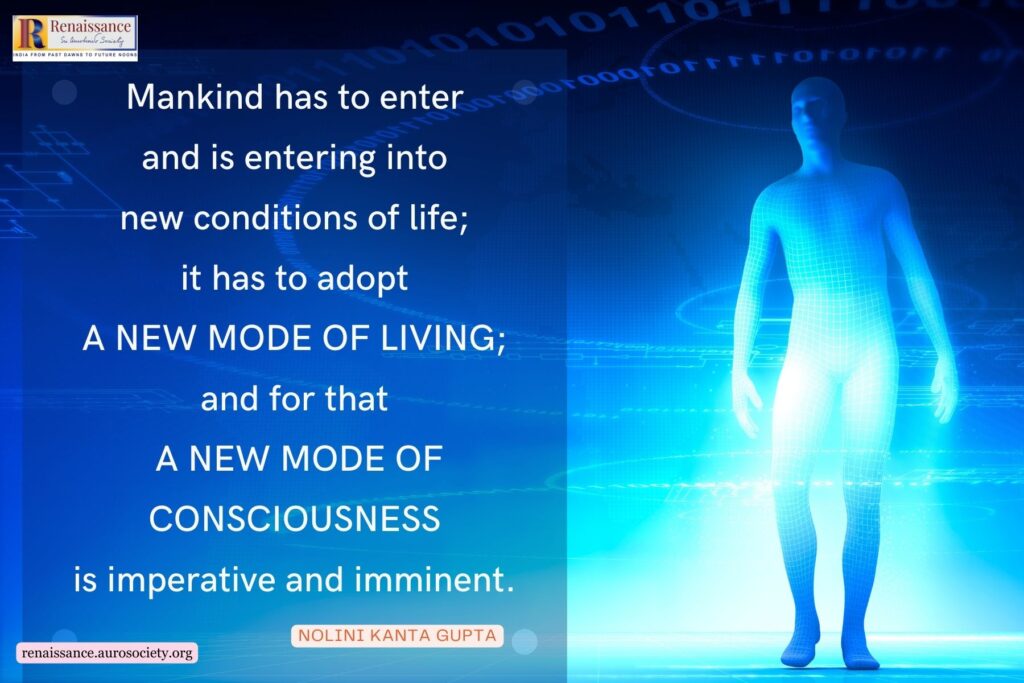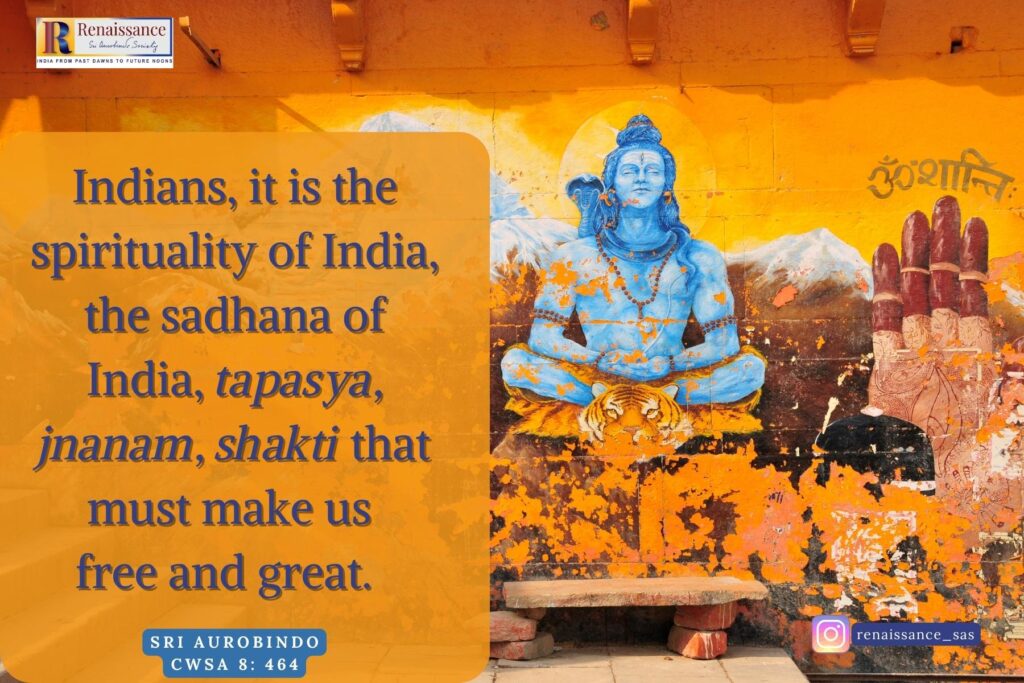Editor’s Note: The author conveys how most of the history textbooks in India don’t capture the ‘whole’ picture of history by completely ignoring the inward orientation of Indian cultural evolution.
This article was first published in Sri Aurobindo Circle (1949) under the title: ‘Sri Aurobindo and Indian Polity’. The present version is slightly edited and organised under separate headings and sub-headings to ensure easier flow of reading.

Introduction
It is impossible by any stretch of imagination to fully measure, or by any critical acumen, to justly evaluate, the literary output of Sri Aurobindo, so stupendous is it in its variety and content – poems, plays, essays literary and historical, philosophical disquisitions, expositions of spiritual ideas and ideals, and letters which are a vast literature by themselves on a wide range of subjects varying from those of ordinary interest to the Yogic but all of them from his own particular spiritual standpoint.
But quite a large part of his writings has not had that circulation which could have brought home to the intellectual elite of humanity the consummate wisdom, the transcendent truths about the fundamental problems of human existence.
In the collection of essays compiled in the volume titled ‘The Renaissance in India and Other Essays on Indian Culture’, Sri Aurobindo delineated the various expressions of India’s creative soul, primarily as a counter blast – and what a powerful and devastating one at that – to the vile aspersions cast on Indian culture by the author of ‘India and the Future’, Sir William Archer.
Sri Aurobindo’s brilliant defence of Indian culture leaves the reader wondering if there were any similar writings with which to compare the excellence of this revealing exposition of the secret of India’s soul, the essential aim and intention of her historic development, the inner, and therefore, the real significance of the ways in which her children have tried through the ages to give form to their aspirations and strivings.

* * *
An Integral Picture of the History of India
The first thing that strikes the reader of Sri Aurobindo’s ‘A Defence of Indian Culture’ is that almost all the works, the so-called standard ones too, on the history of India are utter misnomers, entirely lacking in the correct perspective of India’s cultural evolution. An integral vision, a coherent picture, embracing all the manifold aspects of the creative life of the people is rarely found in what passes for the history of India.
Unending narrations of political events may tell us much but not everything about a people, since these events as they outwardly are, do not, because they cannot, indicate the real intention of Nature in them, without an understanding of which we know next to nothing of the true history of a country, far less of the forces that have shaped its destiny.

The story of India’s political development will be not only inaccurate and incomplete but a fundamentally poor and wrong representation, if it is not told with reference to the true nature and tendency of her racial being, and the psychology that impelled that tendency to fulfil itself in the endeavour of the people to build up a strong collective life based on the ideals set forth in the Dharma-shastras.
The work of the foreign Indologists for the reconstruction of India’s history must always be gratefully acknowledged. But it must also be said that the writings of most of them as well as of Indian scholars who have followed these Western pioneers, betray defects which greatly detract from their value as a faithful record of India’s historic development through centuries.
Besides, the ulterior motives of many of those European writers and their attitude of superiority towards the Indians, because of their long – fortunately now past – political subjection, are not a little responsible for the deliberate attempts they have so often made to belittle ancient India and her greatness and to prove to the world her incapacity to manage her own affairs.
But what is more deplorable is that few Indian historians have so far cared to understand the “inwardness” of their country’s history, the central purpose of its existence.
And this understanding they can have only through an insight into the true character of India’s culture and civilisation, into the spirit that has inspired and moulded the various expressions of her soul. Their exclusive attachment to the scientific method of the West, confined to the obvious and superficial view of things, has blinded these historians to the deep and subtle truths of the dynamic and all-embracing spirituality of India, the centre of her life and culture.
There must, therefore, be an intuitive seeing into the very depth of things so that ideas and forces that actualise themselves in the outer actions and movements may be comprehended in their proper implications, and facts appear in their true bearing on the dominant tendency and the characteristic genius of the race.
The history of India must be a true mirror of all the inner and outer activities of her people, showing at the same time what part her soul played in every one of them. It must therefore be rescued from its subservience to ends that are anything but genuinely historical.
Trained in a system of education which is a poor and perverted imitation of what the West had long ago rejected, we have never learnt how to study and appreciate our own past, and no wonder that we should so often exhibit our colossal ignorance of it in all that we are doing today to rebuild our country on the true basis of our national life, as we conceive it. The impact of an alien culture has dulled in us the power to feel what we really are as a race, a race with a magnificent past whose meaning and purpose have been rediscovered and reaffirmed and shown to us in their proper light by a seer like Sri Aurobindo.
Continued in Part 2….
Image credits: Stupa no. 1, Sanchi: Source



